cure
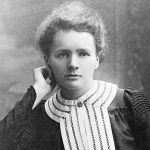
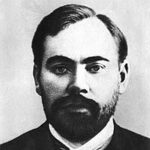 Scientists have done much for mankind. They are dedicated to finding a solution, a cure, a way, often sacrificing their own time, family life, and sometimes even their own life, to solve a problem, find a cure, or make things better. It seems a strange thing to give one’s life for an experiment, and yet people have done just that.
Scientists have done much for mankind. They are dedicated to finding a solution, a cure, a way, often sacrificing their own time, family life, and sometimes even their own life, to solve a problem, find a cure, or make things better. It seems a strange thing to give one’s life for an experiment, and yet people have done just that.
Marie Curie conducted pioneering research on radioactivity, and the discovery of two elements, polonium and radium. Unfortunately, she would die of aplastic anemia, a disease of the bone marrow that was very likely caused by the radioactivity she had been exposed for so many years.
Alexander Bogdanov was obsessed with Hematology. Bogdanov did research in blood transfusions in the 1920s. In fact, he gave himself blood transfusions…over and over. He insisted that the transfusions made him feel better. Maybe they did, but they would also be his undoing, when he transfused himself with the blood of a student who had malaria. Bogdanov contracted the disease and died.
Many people have heard of David Johnston who was a volcanologist. He wanted to see Mount Saint Helens for himself. He was the first to report and urge the evacuation, but seeing the show cost him his life too. He was killed by the Pyroclastic Blast.
Probably one of the most awful deaths to me was that of Harold Maxwell-Lefroy. He spent a lot of time studying bugs, or rather how to get rid of them. He knew that something needed to be done to get rid of these pests. He 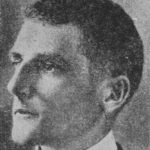
 was very good at his work, but unfortunately, the chemicals would kill people too, and he inhaled enough to do so. In his lab, he inhaled a lethal amount of Lewisite.
was very good at his work, but unfortunately, the chemicals would kill people too, and he inhaled enough to do so. In his lab, he inhaled a lethal amount of Lewisite.
There are others, maybe more that anyone knows of. If they weren’t famous or successful, their deaths might have looked like accidents, diseases, accidental overdoses, or even suicide, when in fact they were nothing of the kind. They are just some of the great scientific minds who gave their all in the name of science. Sadly, by accident.
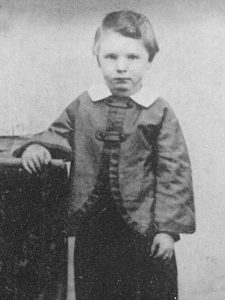 When we think of the White House, we seldom think of death. Oh, there have been presidents who were assassinated, or died while in office, but mostly not in the White House. It is too well guarded, and an ill president usually was taken to a hospital. Nevertheless, death has visited the White House, and the case I am referring to was not a president, but rather his son. Abraham Lincoln is my 7th cousin thrice removed, making his children, my 7th cousins 4 times removed. Lincoln married Mary Todd on November 4, 1842, in Springfield, Illinois. They were the parents of four sons Robert Todd Lincoln was born in 1843 and Edward Baker “Eddie” Lincoln in 1846. Edward died on February 1, 1850, in Springfield, probably of Tuberculosis. William Wallace “Willie” Lincoln was born on December 21, 1850, and died of a Typhoid Fever on February 20, 1862. The Lincolns’ fourth son, Thomas “Tad” Lincoln, was born on April 4, 1853, and died of heart failure at the age of 18 on July 16, 1871. While three of the four boys died in childhood, only one, Willie passed away in the White House.
When we think of the White House, we seldom think of death. Oh, there have been presidents who were assassinated, or died while in office, but mostly not in the White House. It is too well guarded, and an ill president usually was taken to a hospital. Nevertheless, death has visited the White House, and the case I am referring to was not a president, but rather his son. Abraham Lincoln is my 7th cousin thrice removed, making his children, my 7th cousins 4 times removed. Lincoln married Mary Todd on November 4, 1842, in Springfield, Illinois. They were the parents of four sons Robert Todd Lincoln was born in 1843 and Edward Baker “Eddie” Lincoln in 1846. Edward died on February 1, 1850, in Springfield, probably of Tuberculosis. William Wallace “Willie” Lincoln was born on December 21, 1850, and died of a Typhoid Fever on February 20, 1862. The Lincolns’ fourth son, Thomas “Tad” Lincoln, was born on April 4, 1853, and died of heart failure at the age of 18 on July 16, 1871. While three of the four boys died in childhood, only one, Willie passed away in the White House.
Disease was a scary thing in those days, because many serious diseases, which we have cures for now, were a death sentence in those days. Little Willie Lincoln had contracted Typhoid Fever. Typhoid fever, also known simply as typhoid, is a bacterial infection due to Salmonella Typhi that causes symptoms which may vary from mild to severe and usually begin six to thirty days after exposure. The disease was all over Washington DC, and 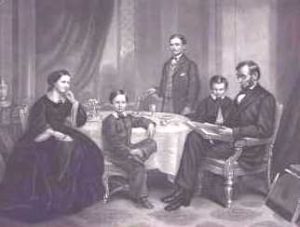 even the White House was not safe from it’s deathly grip. In fact, Willie was not the only one to have it. His brother, Tad was in bed just down the hall, with the same illness. Tad would survive, but I have to wonder if his heart was not severely weakened by the disease, because he passed away just nine years later of heart failure. On February 20, 1862, little 11 year old Willie succumbed to the Typhoid Fever at 5:00pm. His parents were with him, and Abraham Lincoln said, “My poor boy, he was too good for this earth. God has called him home. I know that he is much better off in heaven, but then we loved him so. It is hard, hard to have him die!” Mary watched him bury his head in his hands, “his tall frame convulsed with emotion.” At the foot of the bed she stood “in silent, awe-stricken wonder,” marveling that so rugged a man could be so moved. “I shall never forget those solemn moments — genius and greatness weeping over love’s idol lost.” President Lincoln then walked down the hall to his secretary’s office. He startled the half-dozing secretary with the news: “Well, Nicolay, my boy is gone — he is actually gone!” John Nicolay recalled seeing his boss burst into tears before entering his own office. I think I have to agree with Mary. When we think of Abraham Lincoln, we think of a strong man, but if we think about it, he also had a softer side, and he loved children.
even the White House was not safe from it’s deathly grip. In fact, Willie was not the only one to have it. His brother, Tad was in bed just down the hall, with the same illness. Tad would survive, but I have to wonder if his heart was not severely weakened by the disease, because he passed away just nine years later of heart failure. On February 20, 1862, little 11 year old Willie succumbed to the Typhoid Fever at 5:00pm. His parents were with him, and Abraham Lincoln said, “My poor boy, he was too good for this earth. God has called him home. I know that he is much better off in heaven, but then we loved him so. It is hard, hard to have him die!” Mary watched him bury his head in his hands, “his tall frame convulsed with emotion.” At the foot of the bed she stood “in silent, awe-stricken wonder,” marveling that so rugged a man could be so moved. “I shall never forget those solemn moments — genius and greatness weeping over love’s idol lost.” President Lincoln then walked down the hall to his secretary’s office. He startled the half-dozing secretary with the news: “Well, Nicolay, my boy is gone — he is actually gone!” John Nicolay recalled seeing his boss burst into tears before entering his own office. I think I have to agree with Mary. When we think of Abraham Lincoln, we think of a strong man, but if we think about it, he also had a softer side, and he loved children.
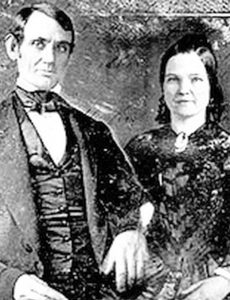 Willie Lincoln was a favorite around the White House. In the words of a government official’s wife, “The White House is sad and still, for its joy and light have fled with little Willie. He was a very bright child, remarkably precocious for his age, and had endeared himself to every one who knew him.” Mary Lincoln’s cousin said he was “noble, beautiful…a counterpart of his father, save that he was handsome.” Mary herself called him the “idolized child, of the household.” It’s somewhat strange to think that such a large household as the White House, with all of it’s staff who work there, could be so changed by the death of a child, but Willie Lincoln was not an ordinary child. Had he been, he might not have come to the attention of everyone in the White House. Most of us know who the first children are but the White House staff knew Willie Lincoln and dearly loved him. As dates in history go, while this little boy was not an important man is the way we think of that today, he had a impact that went far beyond his short time on this earth, and his dying day was one that saddened a nation.
Willie Lincoln was a favorite around the White House. In the words of a government official’s wife, “The White House is sad and still, for its joy and light have fled with little Willie. He was a very bright child, remarkably precocious for his age, and had endeared himself to every one who knew him.” Mary Lincoln’s cousin said he was “noble, beautiful…a counterpart of his father, save that he was handsome.” Mary herself called him the “idolized child, of the household.” It’s somewhat strange to think that such a large household as the White House, with all of it’s staff who work there, could be so changed by the death of a child, but Willie Lincoln was not an ordinary child. Had he been, he might not have come to the attention of everyone in the White House. Most of us know who the first children are but the White House staff knew Willie Lincoln and dearly loved him. As dates in history go, while this little boy was not an important man is the way we think of that today, he had a impact that went far beyond his short time on this earth, and his dying day was one that saddened a nation.

